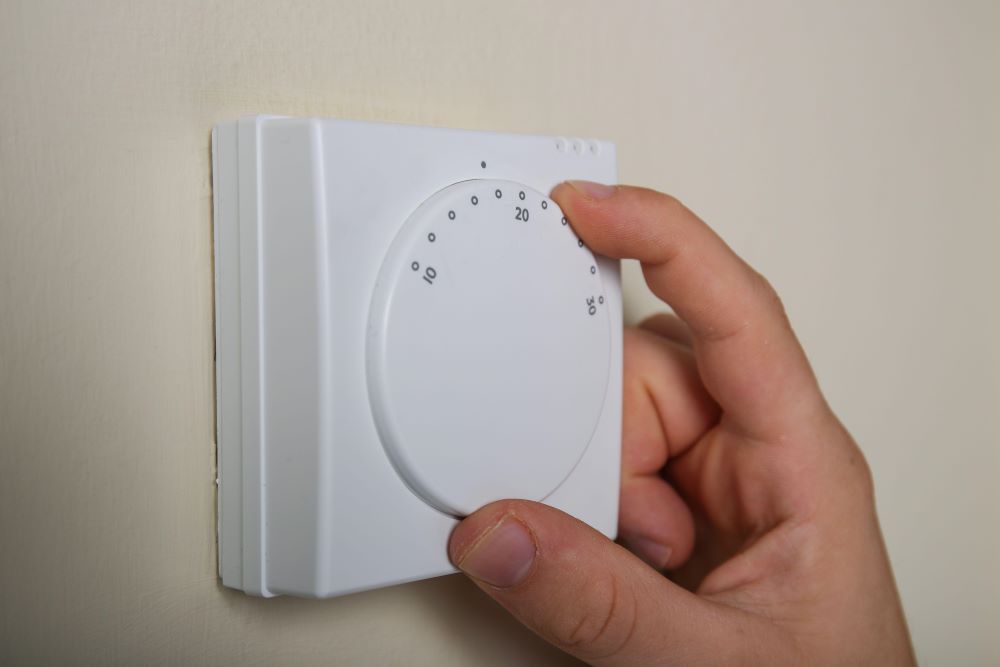What Energy Price Cap Update Will Mean For Bills
Ofgem's price cap from 1 July is expected to be around £2,000. (Alamy)
4 min read
Ofgem's energy price cap is expected to fall below the government's Energy Price Guarantee (EPG) in July for the first time since the government introduced it last September – but experts have warned of a new normal of high energy bills.
Economists at Cornwall Insight, one of the UK's leading energy market intelligence consultancies, predicts Ofgem's energy price cap will be £2,053 from the 1 July – below the government's £2,500 energy price cap.
However, households are still facing extraordinarily high bills – with prices almost double what they were before the energy crisis began in late 2021.
What is Ofgem's energy price cap?
Every three months, Ofgem reviews the amount energy providers can charge per kWh on energy depending on a number of factors, including the price of wholesale energy and network costs; the limit applies to both standard variable and default tarrifs.
The watchdog then uses the per kWh cost to work out how much the average households' yearly usage would cost at this price, which it calls the 'energy price cap'.
Ofgem introduced the approach in 2019 in a bid to protect consumers from energy companies making excessive profits from consumers.

What is changing?
The average energy bill is currently capped at £2,500 by the government through its EPG scheme, which is significantly lower than Ofgem's current £3,280 energy price cap.
However, Ofgem's new price cap is predicted to be below the EPG for the first time since September at around £2,000 from July, meaning the EPG will cease to apply.
The EPG was introduced in September 2022 to insulate customers from the soaring price of wholesale gas, and initially capped the average energy bill at £2,000 despite Ofgem's price cap being much higher, with the government footing the bill.
The government increased the cap to a less generous £2,500 in March 2023 and extended it for another 12 months as prices remained stubbornly high.
The EPG came after warnings from experts that the energy price cap Ofgem provides would exceed £4,000 in January 2023 amid the soaring price of wholesale gas following Russia's invasion of Ukraine.
In a demonstration of how volatile prices have become during the energy crisis, Ofgem's official energy price cap peaked at £4,279 in January 2023 – compared to £1,138 in January 2022.
 11.jpg)
Calls for more support as high energy bills here to stay
While the falling price of wholesale gas has been welcomed, experts have said prices remain elevated and are unlikely to return to pre-2021 levels before the end of the decade.
Simon Francis, co-ordinator at End Fuel Poverty Coalition, told PoliticsHome a lower price cap has been presented as a "success story" by energy companies and government but "the reality is people is that people won't feel like energy bills have come down from these record highs" without more support.
The government is not currently expected to repeat the £400 rebate to all households it offered when energy price cap hit £2,000 last year and there is limited support for certain groups still to come, including a £300 cost of living payment for households on means-tested benefits.
Margaret Hodge, Labour MP for Barking which has the second highest level of fuel poverty in England, said claims a reduction in the price cap will help the poorest are "just not true".
"The price cap may have come down a bit but energy costs are still much much higher than they were before the energy crisis," Hodge told PoliticsHome.
Liam Byrne, Labour MP for Birmingham Hodge Hill, which has the highest levels of fuel poverty in England, told PoliticsHome even with a drop in the cap "residents are still coping with energy bills that have doubled".
Francis also said many have already used their savings and credit cards to cope with high bills which has "depleted people's ability to actually pay for that for future bills next winter".
Responding to calls for a fresh round of energy bill support, a department for energy security and net zero spokesperson said the government had taken "unprecedented action to drive down energy bills" so far – adding "energy bills are naturally expected to fall as we reach the warmer months".
